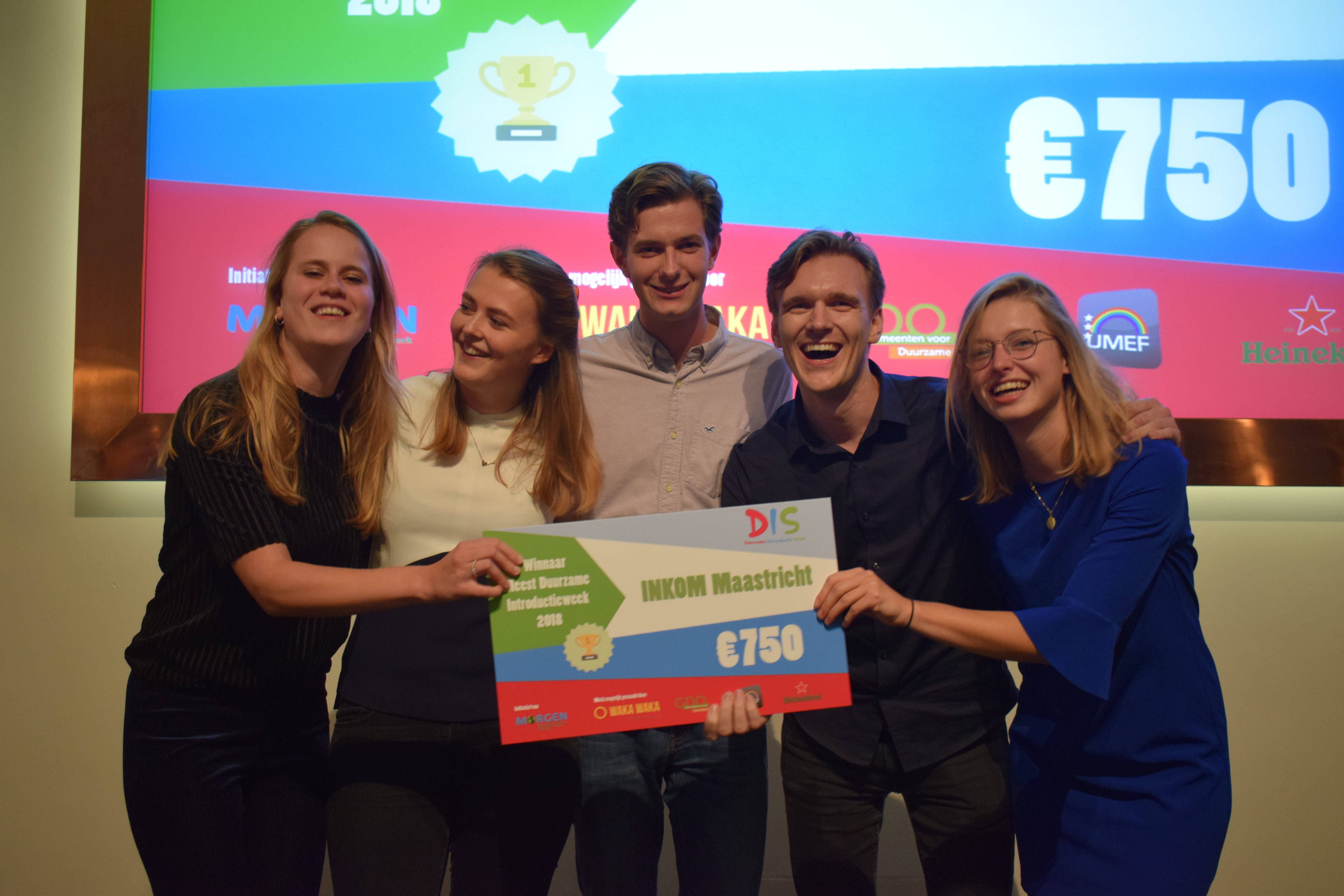INKOM most sustainable introduction week in the Netherlands
The introduction week of Maastricht University, INKOM, was this year’s most sustainable Dutch introduction week. Morgen, the 'student network for a sustainable future', awarded the prize last week to the workgroup that organised the INKOM. The student organisation assessed 23 introduction weeks and events at the beginning of this academic year. On the ten sustainability criteria, the Maastricht event scored two points more than the Nijmegen event.
The Sustainable Introduction Stunt (DIS) is a competition between study and student associations and introduction committees from various cities. The purpose of the DIS is to make future students more aware of sustainability. Morgen, the national student organisation that awards the prize, tries to encourage students to opt for a sustainable lifestyle, study and career. The prize consists of a check for 750 euros.
President Workgroup INKOM responds
Mauk van Bergen, president of the workgroup that organised this year's INKOM, responds to the award: "We have worked really hard this year to make the INKOM more sustainable, since sustainability was still underexposed in recent years. We are very proud of the achieved results, such as banning as much hard plastic waste as possible at our activities and making the Wednesday afternoon in our programme vegetarian. We also learned things: we could definitely use more cleaning teams next year. In any case, Maastricht University has indicated that it wants to continue this sustainable approach in the future, which means we can only build on this fantastic result." This week the Workgroup INKOM also received the Green Key Gold eco-label.
How did the score come about?
The introduction weeks were assessed on waste, electricity, catering, transport, suppliers, plumbing, printing/decoration/work clothing, environment/terrain/safety and finally communication. Among others, the INKOM scored many points for:
- the (green) power supplies
- the 'clean up team' that ensured waste bins were emptied timely
- biodegradable cleaning products for the sanitary facilities
- the cooperation with the recycling shop for decoration
- the payment system for food and drinks; with a chip instead of plastic coins
- using local suppliers
- measures to protect the greenery
- measures to prevent noise.
Also read the interview with the presdient of the Workgroup INKOM (Mauk van Bergen, second from the right) prior to the event.

Also read
-
Massimiliano Simons awarded a grant from the Evert Willem Beth Foundation
Massimiliano Simons has been awarded a grant from the Evert Willem Beth Foundation for the organisation of a symposium to consolidate and strengthen the Dutch- and Flemish-speaking HOPOS (i.e. International Society for the History of Philosophy of Science) community.

-

-
